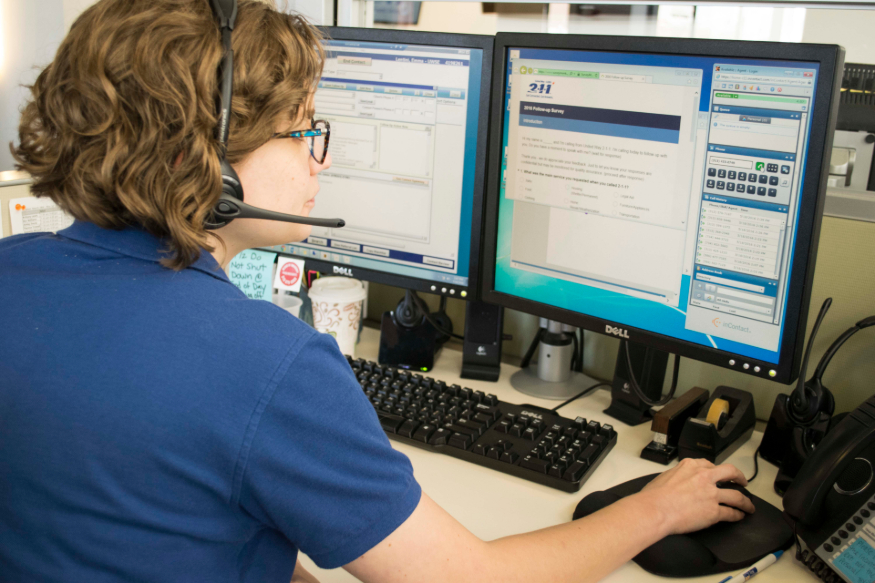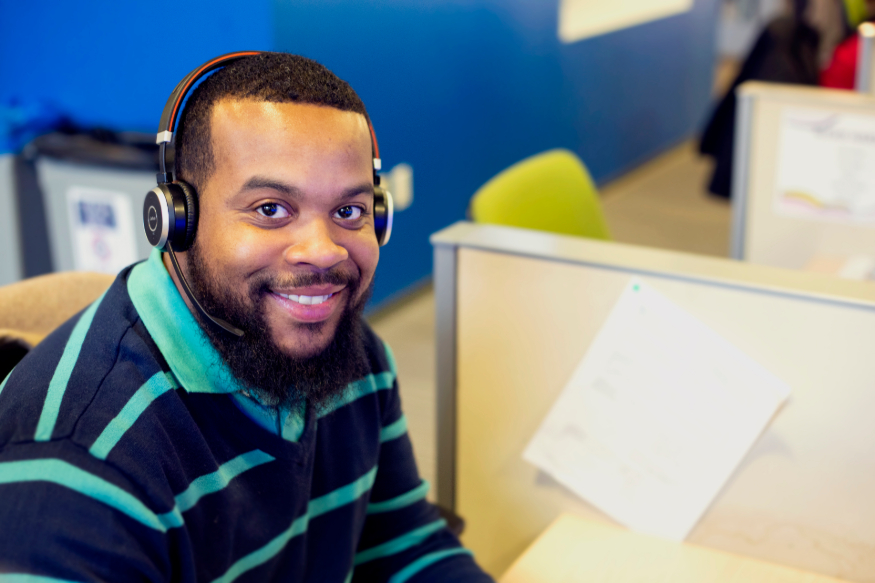2-1-1 enhancements begin thanks to innovation powered by Roush
Published on August 2, 2019
United Way for Southeastern Michigan’s 2-1-1 helpline is about to get supercharged through an investment from our partner Roush Industries.
A $300,000 gift from Roush will help track and improve the long-term outcomes for individuals who call our 2-1-1 helpline.
“It is a tremendous honor for Roush to be part of this initiative. Integrating technology is a big part of what we do at Roush,” said CEO Evan Lyall. “To be given the opportunity to apply technology in such a meaningful way, enhancing the critical work done through the 2-1-1 call center, is very rewarding.”
The improvements will help Southeastern Michigan residents seeking help with a wide variety of issues.
“Years of interactions between the public and 2-1-1 call center agents have taught us there is no one-size-fits-all when it comes to connecting individuals to resources,” said United Way for Southeastern Michigan President and CEO Dr. Darienne Driver Hudson.
“The investment by Roush is imperative as we continue to improve our processes so that we may offer quality, holistic person-centered care each time we answer the call.”

Innovation powered by Roush will build processes and technology to improve United Way for Southeastern Michigan’s 2-1- 1 call center.
Enhancements abound
Specifically, this funding will allow us to implement a system pioneered at the 2-1-1 call center in San Diego. Known as the Community Information Exchange model, the system improved the health and quality of life of their 2-1-1 participants.
Step one is to build a team to track 2-1-1 callers over time and ensure their needs are being met.
“The vision is to have a network of partner agencies who agree to work together as a team to meet the comprehensive needs of callers,” said Kristen Bolds, 2-1-1 Director at United Way for Southeastern Michigan.
“2-1-1 and the partner network will be able to track the customer’s progress toward meeting each of their needs.”
Funding from Roush will also help build processes and technology necessary to make this system a success.

Roush’s invesment will fund improvements to United Way for Southeastern Michigan’s 2-1-1 system over the next three years.
There to answer the call
Each year, United Way for Southeastern Michigan’s 2-1-1 helpline connects hundreds of thousands of callers with needed resources. Callers from a six-county area can find assistance with housing, utilities, food and much more. A database of more than 15,000 resources is available, covering a wide variety of needs.
But we know that more people need help. We also know that some callers likely need more help than what they’re getting. According to United Way’s Asset Limited, Income Constrained, Employed (ALICE) Report, 44 percent of households in Southeastern Michigan struggle to afford basic necessities like food, housing and child care. An overloaded support system can prevent these individuals and families — nearly half of the population in our region — from finding the resources they need.
Families in Southeastern Michigan fall far below national averages in measures like education and employment. The poverty level in our region is higher than the national average. Roush’s investment will allow United Way to better identify the needs of these families and more efficiently help them address barriers to success.
“This level of support will enable us to improve the system service delivery for potentially hundreds of thousands of callers each year,” Bold said.
“The Community Information Exchange technology and infrastructure will facilitate community care planning, allowing partner agencies to share data and contribute to the care plan of each participant,” she added. “This will help us match participants with the most appropriate resources and provide better information regarding program enrollment and outcomes.”
Roush’s commitment will span three years, allowing for large-scale improvements that will increase the efficiency of the entire system.
“Without this contribution, it would be challenging to make such strides in changing the way we deliver service,” Bolds said.